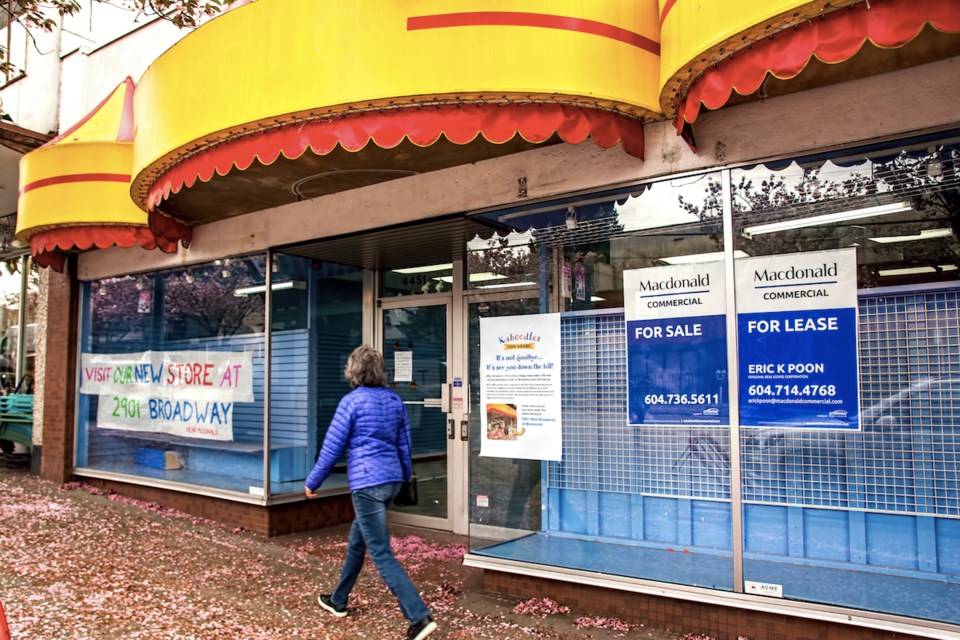The federal-provincial Canada Emergency Commercial Rent Assistance (CERAP) for landlords may not be long or strong enough to stave off evictions in some provinces, according to a KPMG real estate law expert.
B.C. is an exception, banning evictions during the program.
Applications for the program were being accepted as of May 25. Ottawa and the provinces will cover half the cost of rent for eligible businesses, but landlords have to absorb 25 per cent and tenants are expected to tap other federal programs to cover the remaining 25 per cent.
Businesses that can show a 70 per cent reduction in revenue due to the pandemic restrictions are eligible, which would include most retailers that were not allowed to open until recently, such as beauty salons and fitness centres.
But the assistance may not be enough to stop all evictions, both during and post-pandemic, according to Ali Baniasadi, partner, business law, real estate with, KPMG Law LLP.
Baniasadi said that if a tenant cannot pay their share of rent the normal eviction powers allowed a landlord would apply. “I would hope most landlords would realize that some tenants do need help.”
Once the three-month assistance program ends, landlords would have the right to evict tenants who failed to pay all or a portion of the rent, Baniasdi added.
B.C. announced June 1 that a new B.C. emergency order prevents landlords who have opted not to participate in the CEREP program to evict tenants while the program is in effect.
The ban on evictions for non-payment of rent due to COVID-19 will continue as long as the federal program continues, James said. If it is extended beyond June 30, the B.C. order will also be extended, she added.
The CECRA for small businesses is administered by Canada Mortgage and Housing Corp. and will be available until August 31, 2020. Support will be retroactive to April 1, covering April, May and June 2020.
The separate Canada Emergency Business Account (CEBA) is a means for small businesses to cover their 25 per cent share remainder of rent. The CEBA allows banks to offer $40,000 loans guaranteed by government to eligible businesses that will come interest-free for the first year.The federal government has expanded eligibility for the program, allowing applications from businesses with sole ownerships, those that rely on contractors and family businesses that pay through dividends.
When pressed on why the federal government is requiring landlords to absorb 25 per cent of the cost rather than provide direct relief to tenants, Prime Minister Justin Trudeau said it was imperative for landlords to be involved in the program and economic recovery will be slower if businesses close up shop.
“There may be a lot of vacancies in commercial buildings in the coming months and years,” Trudeau said in a daily briefing. “Who knows exactly what the post-pandemic world will look like exactly and that’s why making sure we’re supporting the businesses we have now to be able to stay in their spaces as we slowly restore our economy is going to be important and we certainly expect landlords to be part of this solution.”
The prime minister noted another business program, the Large Employer Emergency Financing Facility (LEEFF), is aimed at businesses with at least $300 million in annual revenue.
Applicants must be seeking minimum loans of $60 million to keep their operations afloat during the pandemic, but the financing is not permitted to be used to resolve insolvencies or restructure firms.
Companies convicted of tax evasion will not qualify and companies must share their complete financial structure as they apply for funding.
The program will have limits on dividends, share buy-backs and executive pay, and the government said it will be reviewing companies’ international organizational structure when determining eligibility.
Companies applying for the program will also be required to publish annual climate-related disclosure reports and detail how their future operations will support national climate goals.



